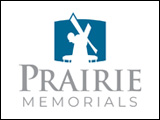Creating Tax Savings for Your Spouse and the Next Generation
Lawyers and notaries often recommend the creation of trusts within wills for reasons that do not relate to tax. Common scenarios include the management of property for young beneficiaries or the disabled, or for a spouse where there is a desire to preserve the capital for the next generation. While these are all valid reasons for the creation of trusts, the tax savings opportunities of testamentary trusts are often overlooked.
First a little background
A trust is a legal relationship under which a person, referred to in trust jargon as the “settler”, gives up ownership of property and transfers control over the property to a trustee, or group of trustees, who manage the property for the benefit of other persons, called the “beneficiaries”. When a trust is referred to as a testamentary trust, it means control over the property was transferred to the trustee as a consequence of the death of the settler. This is in contrast to an inter vivos trust, where the transfer of property is made during the life-time of the settler. The terms of a testamentary trust are most commonly documented within the will of the settler. However, outside of Quebec, a testamentary trust can also be created under the terms of an insurance beneficiary declaration made separate from the settlor’s will for the purpose of receiving proceeds payable under life insurance policies. The distinction between inter vivos trusts and testamentary trusts is important for reasons of taxation. While the undistributed annual income of an inter vivos trust is taxed a the top personal rate (top personal tax rates range from a low of 39% in Alberta to a high of 48.2% in Quebec)*, testamentary trusts benefit from the same graduated rates of tax as individuals. The ability to create a separate taxpayer in the form of a trust, with access to its own graduated rates, is a significant tax planning opportunity.
Example of tax savings
Let’s first examine how a testamentary trust can save tax for a surviving spouse:
George is a retired businessman who earns an annual income of $50,000 from his non-registered investments. His spouse, Ellen, is a retired teacher who earns approximately the same amount as George each year from her pensions and registered retirement income Fund (RRIF). Both Ellen and George are over the age of 65 and qualify For Old Age Security (OAS) and Canada pension Plan (CCP)/Quebec Pension Plan (QPP). Their combined after-tax income is $99,345. In comparison to their combined after-tax income while George was still living, Ellen’s after-tax income has dropped by $24,199. Only $5,903 of this reduction is accounted for by the loss of George’s Old Age Security. The rest is the result of two factors: 1) the increased taxes payable when all family income is reported in the hands of one spouse; and 2) Ellen’s tax bill is more than $7,300 higher than their combined family tax bill when George was still living.
In Canada, Old Age Security is reduced at the rate of 15% for every dollar of income in excess of $63,511*, resulting in a total repayment of Old Age Security when income levels reach approximately $103,000. When Old Age Security is taken into account, seniors with income in excess of $63,511 are subject to the highest rates of taxation in Canada. In this example, Ellen pays tax on her income between $63,511 and $103,000 at an effective marginal rate in excess of 49%.
What could George have done differently?
Let’s assume that, instead of leaving his estate directly to Ellen, George created a trust for Ellen under his Will. The trust would provide Ellen with a right to all income generated by the trust’s investments and the trustees would have the power to access the trust’s capital for Ellen’s benefit. Ellen could even be one of the trustees involved in the trust’s management.
So, how would such an arrangement benefit Ellen? As a trust created under Georges’ Will would be a testamentary trust, an opportunity exists to income split. Ellen would receive all of the trust’s income to use as she sees fit, but an Income Tax Act election can be made allowing the trust to retain responsibility for reporting the income.
For Ellen, the tax savings would amount to $11,502 annually. Even after paying some additional fees for the preparation of a trust tax return, many would view the tax savings as significant. If the assets from George’s estate produced a higher level of income, the savings would be greater.
What about the next generation?
High tax bracket children can also benefit from this income splitting strategy. Receiving their inheritance indirectly through a testamentary trust can give a high tax bracket beneficiary the ability to generate a higher level of after-tax income. Separate trusts can be created under a parent’s will for each child and his or her respective family. Discretion is usually given to the trustees over the distribution on income among family members. Annual income can be distributed to the high-tax bracket beneficiary for his or her own use, but the income can be taxed at lower rates within the trust. Alternatively, when income can be used to benefit a person with little or no income of their own (such as a beneficiary of school age or university age) it may be preferable to have the income reported in the hands of the beneficiary. This will allow for the utilization of the beneficiary’s basic personal tax credit, which shelters the first $9,039 of income from federal tax*.
The tax efficiency of a trust can be further enhanced if the trust’s investments produce “eligible” dividend income earned from Canadian corporations. Where trust income is used to assist a beneficiary with no other income, such as beneficiary can receive up to $66,420 in dividend income before having to pay federal income tax (although in most provinces some provincial tax will be payable beginning at lower income levels).
Who should consider the tax planned will?
Anyone who has accumulated wealth in the form of non-registered assets should consider this strategy. Such assets could include, but would not be limited to, real estate, stocks, bonds, mutual funds and shares in private corporations. Also take into consideration the proceeds of any life insurance policies that will be payable on death. Very often retired business owners and farmers are good candidates, but by no means is the strategy restricted by occupational background. From a tax standpoint, the decision to utilize a testamentary trust turns as much on the income that can be generated from the trust’s assets, as it does on the underlying value of the assets. If the potential beneficiary is a surviving spouse, the major limitation relates to Registered Retirement Savings Plans (RRSPs), Registered Retirement Income Funds (RRIFs) and other forms of registered accounts. With these types of accounts, significant tax deferral will be lost if, on your death, the accounts are not transferred to your spouse in their registered form. In the event you have no surviving spouse, directing registered accounts through your will to a testamentary trust can still be good tax planning.
First steps
To determine whether this strategy makes sense in your situation, you need to first arrive at a reasonable projection of the after-tax value of your estate and the income it can be expected to generate. With this information in hand, an estimate can be made of the potential tax savings that can be achieved for your heirs through a tax planned will. These type of projections are best done by your financial advisor in consultation with your accountant where necessary. Please do not hesitate to contact us if you would like to discuss your particular situation and to determine how a “tax planned will” can assist your family.
This column, written and published by Investors Group Financial Services Inc.(in Québec - a Financial Services Firm), presents general information only and is not a solicitation to buy or sell any investments. Contact your own advisor for specific advice about your circumstances. For more information on this topic please contact your Investors Group Consultant. Insurance products and services are distributed by I.G. Insurance Services Inc. (in Québec - a Financial Services Firm). Insurance licence sponsored by The Great-West Life Assurance Company outside of Québec.



